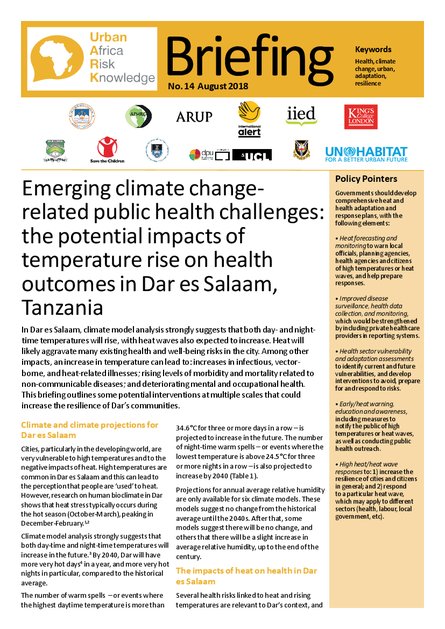
In Dar es Salaam, climate model analysis strongly suggests that both day- and nighttime temperatures will rise, with heat waves also expected to increase. Heat will likely aggravate many existing health and well-being risks in the city. Among other impacts, an increase in temperature can lead to: increases in infectious, vectorborne, and heat-related illnesses; rising levels of morbidity and mortality related to non-communicable diseases; and deteriorating mental and occupational health. This briefing outlines some potential interventions at multiple scales that could increase the resilience of Dar’s communities.
Links
Resource collections
- Climate emergency
- UN Habitat - Urban Response Collection
- Urban Response - Urban Crisis Preparedness and Risk Reduction
- Urban Response Collection - Community Engagement and Social Cohesion
- Urban Response Collection - Economic Recovery
- Urban Response Collection - Environment and Climate Change
- Urban Response Collection - Housing, Land and Property
- Urban Response Collection - Urban Crisis Response, Recovery and Reconstruction
- Urban Response Collection - Urban Resilience